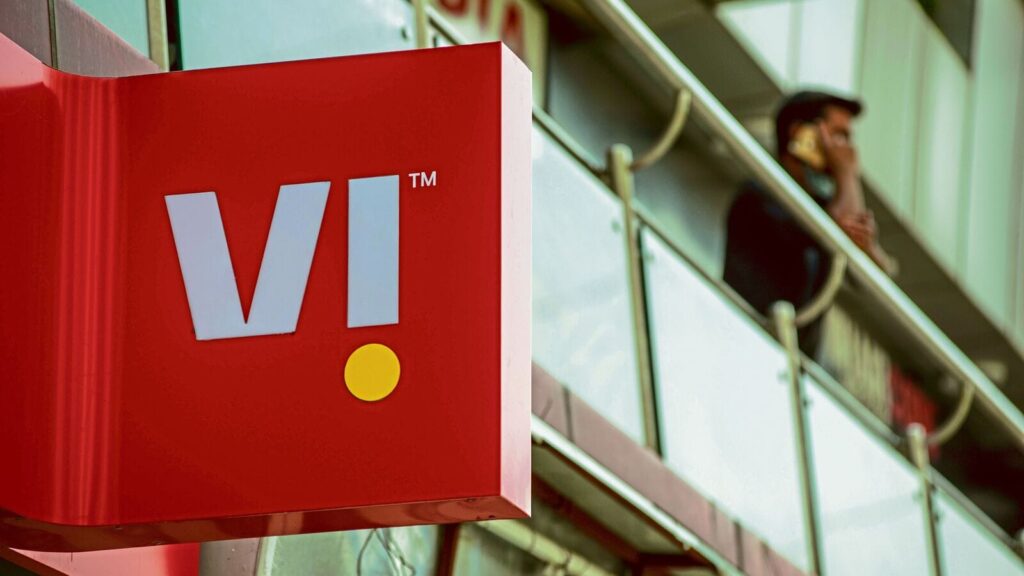“It is humbly submitted that without bank funding, the Petitioner company (Vodafone Idea) will not be able to operate beyond FY 2025-26, as it does not have the ability to pay AGR instalment of ₹18,000 crore as per DoT (department of telecommunications) demands due in March 2026,” Vodafone Idea said in its petition submitted to the Supreme Court on 13 May. Mint has reviewed the petition.
The beleaguered operator has sought a waiver on interest, penalty, and interest on penalty–together worth over ₹45,000 crore–on the ₹83,400 crore pending AGR dues. The four-year moratorium on these payouts ends in September.
The plea comes after the government in March offered another reprieve to the company by converting an additional ₹36,950 crore worth of statutory dues into equity. The second dues conversion took the government’s stake in Vodafone Idea to 49%.
After the recent conversion by spectrum dues to equity by the government, the company again approached the banks for debt funding, but “they have expressed their inability to progress till there is resolution of these large AGR annual instalments”, the petition said.
Vodafone Idea owes about ₹1.19 trillion in spectrum dues to the government, in addition to the ₹83,400 crore AGR dues, taking its total government dues to over ₹2 trillion as of March end.
According to Vodafone Idea, the funds raised by the company so far will be utilized soon and the entire capex cycle will come to a halt. “In such a case, the entire fundraising done over last 12 months and investments made so far by the Company, as also the equity stake of Government including the recent conversion, will lose value,” the company said in the petition.
It added that “the entire efforts put up by Company and Government to revive the company will go in vain in next few months and there will be no recovery of Government dues”.
Without funding, the petition said, the planned investments will not happen and operational performance improvement will be stalled.
Mint’s emailed queries to Vodafone Idea didn’t elicit a response until press time.
Seeks restrictions on govt
The company has urged the Supreme Court to “issue an appropriate writ, order or direction directing the Respondent-Union of India, to act fairly and in public interest and not to seek/insist for payment of interest, penalty and interest on penalty on AGR dues”, according to the petition.
The company requested the court to issue an appropriate writ, order or direction restraining the government from insisting on payment of interest for the period of payment of dues in instalments. Vodafone Idea urged the court to also restrain the government from making an “arbitrary and illegal claim of interest on interest”.
Govt lifeline
Vodafone Idea has sought a waiver from the Supreme Court on the AGR front because the government is not expected to provide further relief. Another equity conversion would increase the government stake in Vodafone Idea beyond 49%, which would make it a public sector undertaking (PSU).
On 17 April, the company had submitted a representation to the government, seeking a waiver of interest, penalty and interest on penalty on its AGR dues, according to the petition.
AGR payouts coming up
In its petition, Vodafone Idea said the AGR liability demand from the government stands at ₹83,400 crores as of March end, with an annual instalment of approximately ₹18,000 crore due on 31 March 2026.
“It is important to note that this payment of approx. ₹18,000 crores which has to be paid on a yearly basis for the next 6 years, is far in excess of Company’s operational cash generation capacity each year,” the petition said, adding that for the last three years the company’s annual operational cash generation was in the range of ₹8,400 crore to ₹9,200 crore.
As of December 2024, Vodafone Idea’s total debt was around ₹2.3 trillion. Of this, ₹77,000 crore was AGR and ₹1.4 trillion was the spectrum liability. In 2021, as part of the telecom relief package, the government had provided a four-year moratorium on some AGR dues from spectrum auctions held before 2021. The moratorium is set to expire in September this year.
“Insofar as interest and penalty components are concerned, Vodafone Idea has a right to approach the apex court. This has to be read with the moratorium already provided by the government,” said Sunayana Basu Mallik, partner at King Stubb & Kasiva, Advocates and Attorneys.
“The technological evolution within the telecom sector in the last decade has led to visible financial loss of revenue,” Mallik said. “The verdict pursuant to a Curative petition rendered earlier is now to be considered in view of the change in sectoral circumstances, fresh internal views taken by the department of telecom (DoT) and the present environment of operating in the telecom business.”
AGR hit
The operator’s biggest financial strain stems from the AGR issue. In 2019, the Supreme Court ruled that Vodafone Idea and its peers need to pay statutory liabilities on AGR, which includes non-telecom revenue. There was a massive gap between the telecom department’s calculations and the self-assessed dues by telecom operators. For Vodafone Idea, the DoT calculated total dues at ₹58,000 crore against the company’s estimate of ₹21,500 crore.
In September 2024, the Supreme Court rejected curative petitions filed by Vodafone Idea and other operators seeking relief in the apex court’s 2019 ruling.
Between March 2024 till now, Vodafone Idea has raised equity of around ₹26,000 crores (other than conversion of government dues to equity).
Shares of Vodafone Idea rose 3.6% to ₹7.23 on the BSE compared with a 1.48% jump in the benchmark Sensex.
Source:https://www.livemint.com/companies/news/vi-supreme-court-won-t-be-able-to-operate-beyond-fy26-without-bank-funding-agr-dues-11747312848751.html

